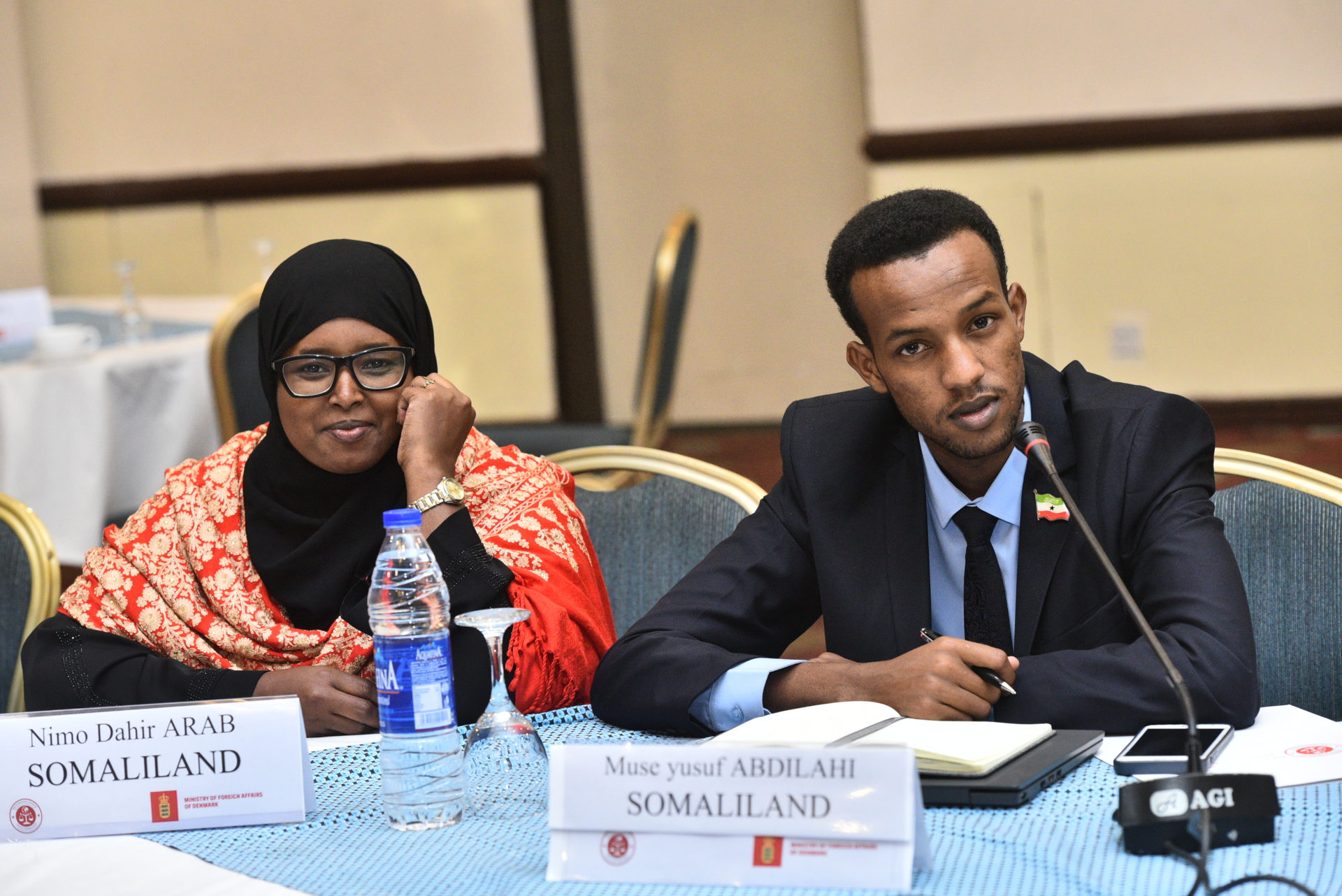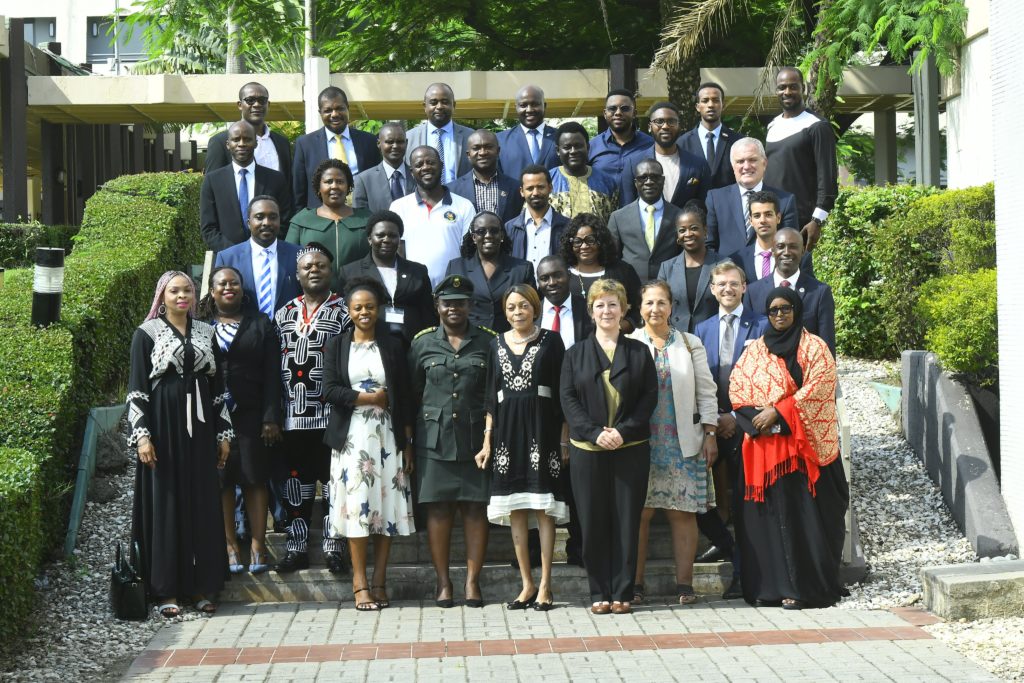
In late June and early July 2022, the IIJ Academic Unit convened its pilot Anglophone course based on the innovative Counter-Terrorism Academic Curriculum (CTAC). Funded by the Ministry of Foreign Affairs of the Kingdom of Denmark and co-hosted by the Ministry of Justice of the Federal Republic of Nigeria, the pilot CTAC brought together 27 investigators, examining judges, and prosecutors from Cameroon, Ethiopia, Ghana, Kenya, Nigeria, Sierra Leone, Somalia, Tanzania and Uganda for an immersive, foundational course aimed at strengthening practitioners’ core skills on conducting investigations and prosecutions of terrorist crimes through:
- Increased awareness of proportionate, reasonable and justifiable methods to investigate terrorism, in compliance with human rights, including special investigation techniques;
- Improved drafting and advocacy skills to accurately communicate facts and legal arguments;
- Implementation of efficient case management procedures to reduce trial delays;
- Enhanced knowledge of international good practices for the effective investigation and prosecution of terrorism cases; and
- Strengthening international networks and international cooperation to improve evidence collection, mutual legal assistance and the extradition of offenders.

The CTAC uses interactive pedagogical methods through which practitioners are required to solve problems and challenges which arise during the investigation of a hypothetical cross-border terrorism case. The process of active problem solving, immediately after reading substantive legal materials and international good practices, reinforces the relevant skills and good practices presented in the course materials. The problem-solving exercises allow participants to deepen their fundamental knowledge and facilitates the use and implementation of these new skills during their work in their national jurisdictions.
This second CTAC course welcomed practitioners who had previously worked together during the Academic Unit’s English-language eCTAC iterations on proactive investigations to consolidate the very dynamic network of our frontline practitioners. Duncan Matundura Ondimu, Senior Principal Prosecution Counsel in the Kenyan Office of the Director of Public Prosecutions, noted how this was particularly beneficial. “The CTAC is now way different because you are having now the personal interactions with your colleagues from different countries, where we shared experiences in the course how each of us conducts the investigations,” he said, “and we realised that we can actually build ourselves because of what we learned and the lessons we have shared.”

Feedback on the CTAC course was positive and detailed how lessons learned during the course could be translated into practical approaches to improve their work. For example, Assistant Director of Public Prosecutions in Uganda, Betty Agola, noted how through the CTAC course, “We were able to come up with practical suggestions or solutions to the challenges that we faced as prosecutors and law enforcers involved in the fight against terrorism. Whatever I have gained from this course will benefit me as a practitioner but also benefit my country, Uganda.”
For more information on the CTAC, please contact Programme Manager Dallin Van Leuven.
